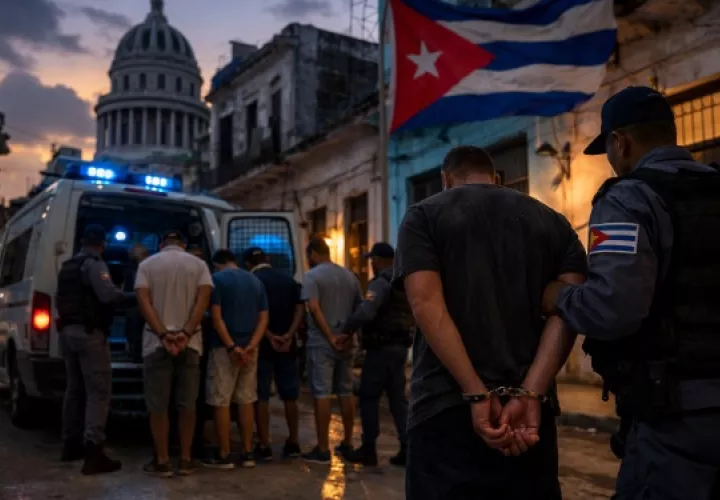10 years after worst health scandal, court slaps wrists

TEN YEARS after it first become known that scores had died and hundreds more were poisoned with cough mixture containing diethylene glycol, a Panama court has passed judgment on those involved and acquitted many senior officials.
On Friday, July 20, one person was sentenced to five years in jail, and four others to 12 months for the mass poisoning from cough syrups of the Social Security Fund (CSS), the biggest public health tragedy in the history of Panama with well over 100 dead and hundreds more affected for life.
The same judgment acquitted six other Panamanians
The decision , signed by Justices Luis Mario Carrasco (rapporteur), Maria de Lourdes Estrada and Adolfo Mejia sentenced Angel De La Cruz, owner of Medicom Business Group, SA to five years in prison, and a fine of $ 6,000.
The ruling says that De La Cruz altered “the certificate of analysis that accompanied the delivery of the product ordered by the CSS as glycerin USP grade, with respect to the nomenclature of the product and its expiration date.”
The ruling also sentenced Edward Taylor to 12 months in prison. At the time he was the head of the CSS Quality Control Laboratory. The judges said that Taylor signed the document of evaluation which indicated that the sample product for technical criteria presented by Medicom “met the required specifications.”
Although Taylor and collaborators of the laboratory in defense pointed to the lack of appropriate equipment such as a factor for the poisonings “It was perfectly predictable for a person with the ability and training of Taylor to determine what practices the quality control he was approving … could generate “.
Miguel Antonio Algandona, who worked as a storekeeper in the CSS laboratory quality control, also got 12 months in jail. The judgment indicates that Algandona was the one who certified the suitability of the raw material and product sold by Medicom The judges censured Algandona’s professional behavior and said he “missed a duty of care that was clearly enforceable”.
Nereida Quintero Velasco who was the director of Abastos ISS got 12 months: “it was the administrative body directly responsible for the supervision of the Quality Control Laboratory of the CSS”.
They add that she was the person who could blame herself for the consequences of inadequate control of this unit (…)”.
Marta Sanchez de Castillo, who succeeded Quintero Velasco in the post was sentenced to one year in prison after the court decided that “she fits the same criminal complaint as the previous one, [Quintero Velasco]. ” This, by virtue of their professional duties included auditing and ensuring the smooth running of the laboratory.
The former director of the CSS René Luciani was cleared of blame after the court determined he was unaware of the circumstances of the problem
Linda Thomas, former head of Production Laboratory Medicines CSS, was acquitted by the judges, arguing that she merely complied with the procedures for product development, using inputs that had “suitable” certification
Pablo Solis, former director of CSS Pharmacy was cleared of guilt because the existing quality control provisions at the time, in the field of production of pharmaceutical supplies was the responsibility of the manufacturer.
Gateño Theophilus, who financed the company Medicom, was acquitted after the Second Superior Court considered that his role was that of a businessman who operated within the rotation of trade and finance.
LONGEST CASE
Ignacio Torres, assistant pharmacist CSS, was acquitted by the court in determining that “in particular, he denies having researched “ the batch for pure glycerine …”
La Prensa says the case was arguably the longest criminal investigation in the Panama’s history, with the largest number of victims and survivors .
Such low penalties are derived from a Penal Code of 1982, which was essentially a very simple legal instrument and that it did not consider the complexity of social life.
In addition, the Second Superior Criminal Court’s , characterization of crimes chosen by the prosecution was highly restricted, preventing consideration of other possible crimes.
The consequences leave a bad taste, because it implicitly exempts the State from responsibility condemning Mr. De La Cruz to answer only for damage caused to four victims who were finally listed as complainants and received recognition as victims by the Court. All others have been circumvented.
LESSONS
The lessons of this case, says La Prensa are essentially threefold:
1. Neither the public nor the judiciary Ministry have the means or capacity to address cases of such complexity.
2. The system purchases of medicines and other sensitive goods and services, cannot be governed by criteria of price and / or informality. Panamanian bureaucracy is unable to monitor and supervise that what you buy is exactly what you ordered
3. The system of protection of the rights of the victims for such crimes must be strengthened. Although the accusatory system gives a major role to victims, the case of diethylene possibly would not have had a better outcome.
It is left to the victims and their relatives to sue the Panamanian State in international bodies to assume all responsibility.by act and. The annuity granted by law is not even a decent compensation for suffering and pain.





